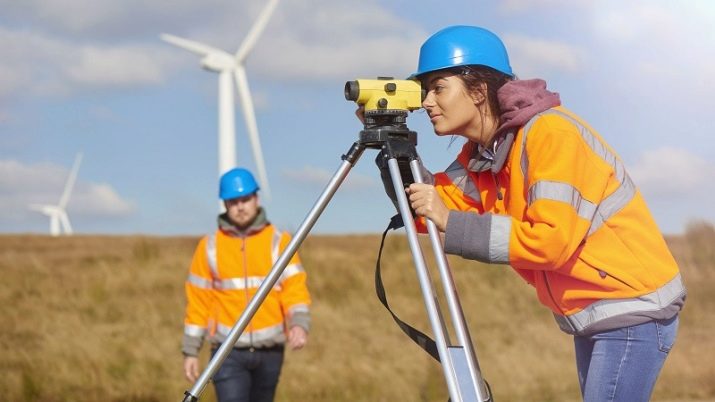Occupations of the "human-sign system" type

Mental work is the basis on the basis of which a whole group of interesting and promising professions is formed. These are types of work associated with different significant areas that form the very specifics of the direction of activity.

Peculiarities
A distinctive characteristic of specialties of the type "man - sign system" (according to Klimov) is intellectual activity, through which sign systems are created and used. Actually designations, symbols, terms refer to objects of labor. The essence of the activity consists in mastering, reproducing, translating a certain sign-symbolic system into a more understandable form and back (encryption / decryption).
There are a number of requirements for professionals working in this area. They should be:
- punctual;
- disciplined;
- with high performance;
- scrupulous;
- neat;
- with excellent RAM;
- with developed visual-figurative thinking;
- with a high and stable concentration of attention;
- with a tendency to organize;
- capable of routine work.
Within this group of professions, two types of specialties are distinguished.
- Performing - work according to a certain template, with strict adherence to instructions, adherence to proper standards (cashier, proofreader and others).
- Creative (heuristic) - work in which it is necessary to make non-standard situational decisions, the introduction of new methods of analysis, planning, design and research. For example, the profession of an economist, translator, programmer.

The most common professions
In the group of professions of this category, 4 types are distinguished according to the object of labor:
- with words, texts, books, documents;
- with numbers, formulas, signs;
- with images, maps and diagrams;
- with information systems, internet and computers.
Automation engineer
The purpose of this specialty is the creation and operation of software, technical means of automation. This refers to work related to improving the quality of products, rationalizing labor, increasing the level of productivity.
Such a worker must have analytical thinking and understand technology, be attentive, accurate and painstaking, have organizational skills. Specialists with such qualifications work in design organizations, computer centers, industrial enterprises, and so on. Today this profession is available and extremely relevant.

Logistician
The goal is to carefully calculate the nuances of the transportation routes of the products manufactured by the enterprise to the addresses of the customers. The logistician must be purposeful, organized, pragmatic, excellent logic, stress-resistant.
Calculation of optimal transportation routes also requires the ability to work with significant information volumes of data, achieving the greatest commercial benefit.

Systems Analyst
He works on IT projects together with business analysts. The goal is the development and maintenance of requirements for applied types of software and information systems, the formation of technical specifications (TOR) for software. System analysts are required to freely navigate the financial characteristics of the company, to know the specifics of the work of the entire production.
In large IT companies, responsibilities are usually divided according to areas - testing, documentation, support, development. Nowadays this profession is in high demand. Professionals must have an analytical mindset, the ability to clearly formulate tasks, prioritize and think ahead.

Software tester
The goal is to test software before its implementation, to check its quality. Functional examples - finding bugs in programs, possible failures, identifying the degree of software compliance with the stated requirements, documenting the defects found. Control over the quality of software is an actual operation that is usually performed by teams of testers. One tester works with small volumes of tasks, sometimes working remotely.
“There are no perfect programs, there are poorly tested ones” is the motto of the testers. They represent a young and rapidly developing specialization. Knowledge of English is required.

IT developer
Developers in IT create computer games, mobile applications, websites and other products... They are subdivided by areas of activity: applied, system and web programmers. The first focus on games, specialized programs, editors, instant messengers, and other applied software. The second - on the OS, networks, interfaces to the database. Still others - on web programs and website development.
A must here is the ability and desire to work in a team.... So, the gaming sphere gathers around itself a whole group of professionals in different areas. In addition to IT firms and web studios, research centers and enterprises need developers. When hiring, candidates are usually tested.

Accountant
In terms of employment, the profession of an accountant is almost a win-win. However, like a number of other professions, this one is not devoid of some well-known stereotypes (routine, monotonous, boring). This type of activity involves painstaking, time-consuming and responsible work, with many responsibilities - from calculating payroll to performing inspections. An accountant must be scrupulous, extremely attentive, possessing an excellent memory and self-control. Any mistake here is fraught with a judicial outcome.
In large organizations, there are groups of accountants working in separate areas, headed by a chief specialist. The basis of the profession is: the ability to work with spreadsheets, data processing and analysis. In the course of training, future specialists are required to master knowledge in the fields of micro- and macroeconomics, accounting audit, mathematical analysis, statistics, reporting and others.

IT Project Manager
The IT industry needs skilled leaders. Therefore, the profession of a manager is here extremely relevant. It is the managers who are responsible for the timely and high-quality execution of IT projects. This is the level of making plans, setting goals, setting priorities, organizing and motivating the team, analyzing potential risks, and controlling quality.
The tasks performed by the manager are divided into tasks of the tactical and strategic level. Therefore, he must be always organized, communicative, decisive, efficient, purposeful, restrained, with good analytical skills and excellent knowledge in the field of information technology.

Business analyst
The goal is to study the customer's problems, and develop concepts for their successful solution, formalized in the form of technical tasks (TOR) for development groups. It is the link between the firm and the customer-ordering party. To understand the client correctly, to present his wishes to the developers in an accessible and competent manner is the key to the successful work of the company.
A competent specialist is obliged to perfectly navigate the subject area, speak English, methods of analyzing and formalizing the wishes of clients, be responsible and constantly develop. Finding non-trivial solutions is his field of activity.

Culturologist
The goal is to conduct scientific research, write articles and publish them in popular science publications, form teaching aids, teaching.
Such specialists work in the Ministry of Culture, various companies, publishing houses, museums, galleries, mass media as consultants on cultural issues.

Architect
The profession of an architect will never lose its relevance. Its purpose is clear - it is urban planning... An architect must have artistic talent, good spatial thinking and be, in a certain sense, an engineer-inventor, have deep knowledge of the history of architecture.
Today this profession is quite popular, but design organizations, workshops, construction companies, design studios still experience a shortage of architects. Not everyone is able to combine a subtle artistic nature and a rational design mind.

Land surveyor
The goal is to control the state and use of the state's land resources, draw up documents for land plots for the construction of both private buildings and industrial enterprises, compile inventories of buildings, resolve conflicts over land.
The profession is associated with frequent business trips. It requires good spatial thinking, excellent visual memory, a mathematical mindset, a thorough approach to paperwork, the ability not to conflict, and respect for the earth.

How not to be mistaken with the choice?
The answer to this pressing question is not difficult to find. Ask yourself a series of questions - about your inclinations, favorite school subjects, consult with teachers, professionals working in this field, listen to yourself.
But, alas, no one is guaranteed against mistakes. A person changes, but "in order to know the taste of pudding, you have to taste it."









